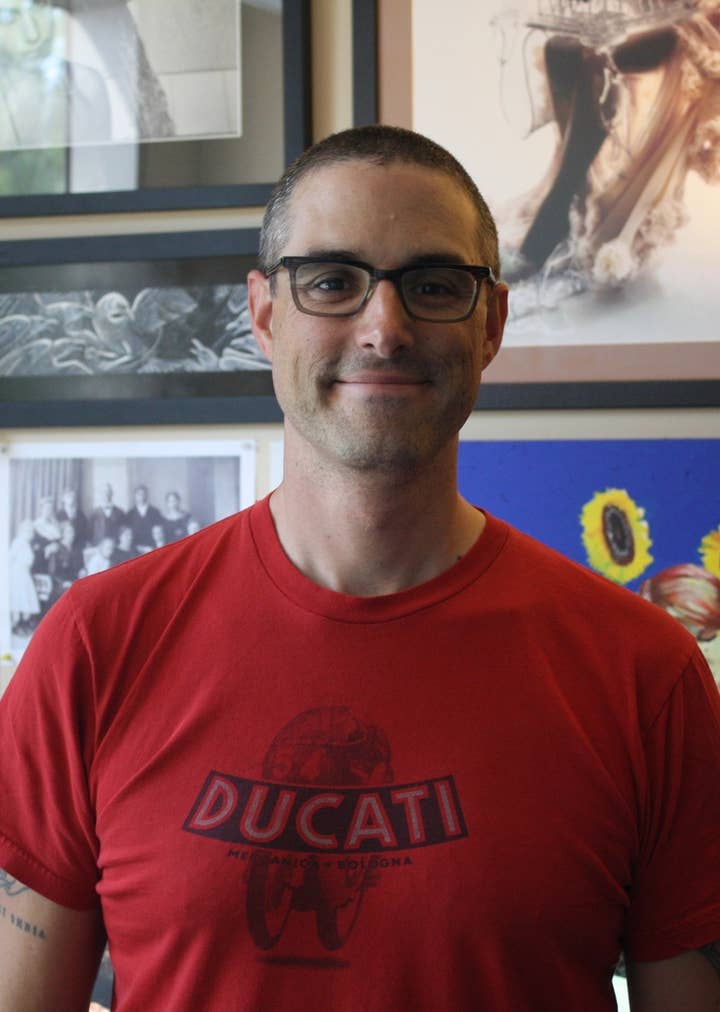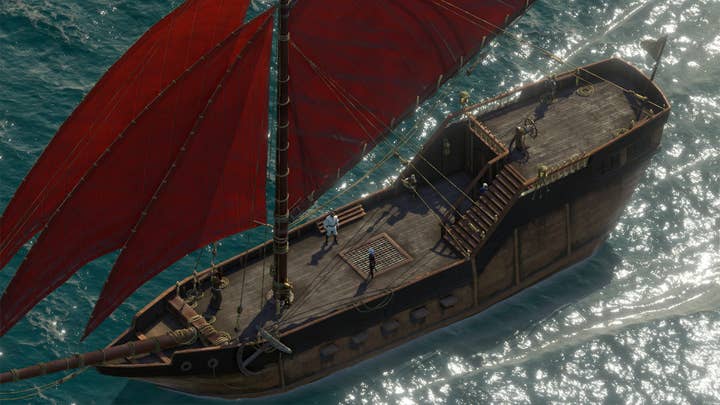Pillars of Eternity II director on Obsidian's shift from studio-for-hire to building its own IP
Working on your own IP is "less about the freedom and more about the institutional knowledge to understand what the IP is"
Obsidian Entertainment currently finds itself in an unusual position as, for the first time in its 14-year history, the studio is making a sequel to one of its own games, rather than someone else's.
After having raised $4.4 million on equity crowdfunding platform Fig earlier last year, Pillars of Eternity II: Deadfire is scheduled for release in early April 2018.
While Obsidian is more than well versed in what it takes to craft a pitch-perfect sequel for an IP it doesn't own, it's now faced with the new challenge of delivering a worthwhile second installment for one of its own properties.
Obsidian is a name that carries a certain weight among fans of RPGs. Founded in 2003, the studio's first game was Star Wars: Knights of the Old Republic II which was launched just 18 months later. It was, by all accounts, rushed out by the publisher in time for Christmas, leaving vast swathes of the game unfinished. But, to Obsidian's credit, it was met with a positive reception from both fans and critics and remains a classic to this day.
Since then, Obsidian has only solidified its position as a studio of calibre and talent, with titles like Fallout: New Vegas and South Park: The Stick of Truth, to its name. All of this, coupled with a genealogy dating back to the old Infinity Engine games and the original Fallout series, has inspired a great deal of confidence and loyalty from fans.

Speaking with GamesIndustry.biz Josh Sawyer, creative director for Pillars of Eternity II: Deadfire, explored the challenges and advantages of working on a sequel to your own IP.
"The pressure is sort of the same in that I know what the expectations of people who like the Infinity Engine games are, and it's why I can design for them," he says. "But working on someone elses' IP you also have preconceived expectations. Working on Star Wars, for example, there is certainly no shortage of fans that have opinions on how everything should be in the universe.
"It's more nerve-wracking [working on Pillars of Eternity] in the sense that it's all our responsibility, but there's no pressure in the sense that I feel like I can do a good a job on this as someone elses' IP. So from that perspective I feel totally fine working on it, it's just knowing that I don't want to let the company down, I don't want to squander the chance I've been given to make something for the fans.
"For an indie developer, being able to own your own IP is a blessing, and if your IP actually gets traction that's a double-blessing"
"Because this is an intellectual property that Obsidian wants to continue to develop, both in games like this and potentially other spin-off games, we want to make sure that it remains very healthy and popular and continues to grow over time. Because for an indie developer, being able to own your own IP is a blessing, and if your IP actually gets traction that's a double-blessing so we can't squander this."
Sawyer has years of experience working on properties from Fallout to Dungeons & Dragons. While he's acutely aware of how important it is to get entries into these series right, he alludes to the frustration of working with IP holders who are - understandably he admits - protective of their brand.
"For the big IPs like Star Wars there are legions of people at Lucasfilm, and now Disney, who are responsible for maintaining the DNA of that and it can be frustrating to run afoul of that," he says. "They just want something that fits, and that's totally fine for them to do that, but it's a much more difficult process because what you think is cool and exciting and interesting - that has to go through another party to figure out if it really applies."
Additionally, when you don't control the brand, its gradual evolution is thrust upon you, rather than being shaped by you. For Sawyer, who cut his teeth developing these games, Dungeons & Dragons typifies the problem and what makes working on an IP owned by Obsidian an exciting opportunity.
"That's a game that has changed franchise holder over the years, and what goes and what doesn't go has changed a lot over those years too," says Sawyer. "That was really weird because the IP holder... changed a lot of the focus over time so even when you think you have your head around an IP, the holder can go in another direction and then you have to reconceive all of this stuff.
"But when it's your IP, you're the ones deciding to take it in a new direction, and it's less about the freedom and more about the institutional knowledge to understand what the IP is really about, that gives you the power to hopefully grow it in ways that feels organic and natural."

Growing the game and IP in an organic way lies at the core of Obsidian's development approach to Deadfire. The team knows exactly what game it is trying to make, and with a host of veterans from the Infinity Engine games onboard, it no doubt has the talent required.
But of course, as a crowdfunding project with an established fanbase, it also has the will of its supporters to contend with. This can put a studio at odds with its own creative vision if not kept in check, but it's something Sawyer and the development team have approached with consideration.
"We try to listen to everyone but obviously we don't do everything they suggest," he says. "So we do have to rely on our experience, and we do have to read between the lines. One thing that we're also doing is relying both on qualitative feedback from individual backers, as well as quantitative feedback from telemetry."
With the launch of Deadfire rapidly approaching, telemetry data from beta players is essential for honing down those rough edges. While the sheer volume of data harvested from volunteers can hold the secret to ensuring the final product hits its mark, it can be a double-edged sword if you don't know what answers you're looking for.
"Data is not a solution, data is another tool to understand things. You have to ask the right questions... It doesn't just answer things for you"
"I think what a lot of people who get telemetry data find out is that you can ask for more and more of it, then it actually lands on your desk and you don't know how to make sense of it," says Sawyer.
"Data is not a solution, data is another tool to understand things. You have to ask the right questions, and you have to always put the data in context. It doesn't just answer things for you.
"You can look at data to either compliment or contrast the game. If you hear a lot of people saying something [about the game], but you see data that contradicts that, then you have to start asking why? Are there other data elements that go into this that aren't telling the whole story."
With Deadfire, Obsidian's legacy is arguably at stake. It's a studio which has demonstrated that, despite having been forced to release games prematurely in the past, it can still develop first-class titles. As an independent studio with its own property to protect, it's also showed willingness with the launch of the prequel to delay a game, not just for the benefit of the consumer, but for the health of the studio's reputation and IP.
"I've worked on a lot of games that for one reason or another, wound up being rushed, and I know they were rushed, but I don't necessarily have a lot of control over when they come out," said Sawyer. "With Pillars of Eternity I we were supposed to ship in the winter prior but it wasn't ready. It was technically done in the sense that all the stuff was in the game, but it played like junk and was really buggy.
"This is our IP, something we made for fans, who were telling us to take our time. We don't want to waste time, we don't want to just sit here and spin our wheels on dumb crap, but we recognise that we had one chance to make a good impression with this franchise, so let's take some more time. So we took several more months and the game was vastly better, it still had some problems on launch, but it was way better. You would not have want to seen it before it launched."








